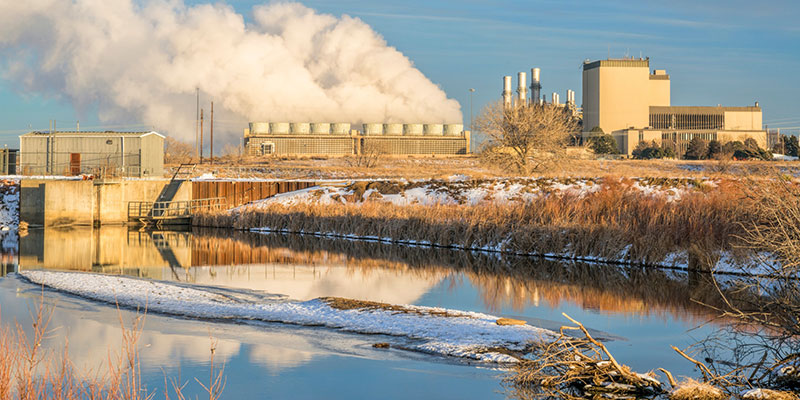Industrial Waste Water Treatment-- Comprehensive Systems for Wastewater Disposal
Industrial Waste Water Treatment-- Comprehensive Systems for Wastewater Disposal
Blog Article
Technologies and Advancements in Hazardous Waste Water Therapy Technologies
The landscape of industrial wastewater therapy is undertaking a transformative shift, driven by innovations that boost both performance and sustainability. As regulative criteria evolve, the combination of AI and maker understanding into wastewater administration systems assures to make sure and enhance operations compliance.
Summary of Drainage Treatment Technologies
Wastewater treatment modern technologies incorporate a series of techniques created to remove impurities from commercial effluents prior to their release right into the setting. These technologies are crucial for preserving ecological balance and making certain conformity with environmental regulations. The main categories of wastewater treatment include physical, chemical, and organic approaches, each serving distinctive purposes based upon the nature of the pollutants present.

Biological treatment methods utilize bacteria to deteriorate organic issue, making them particularly efficient for organic-rich effluents. Strategies like turned on sludge and biofilm reactors harness the natural degradation capacities of germs, bring about considerable decreases in biochemical oxygen need (BOD)
Advanced Purification Techniques
Advanced filtration techniques stand for a vital development in the world of industrial wastewater treatment, improving the efficiency of contaminant elimination processes. Industrial Waste Water Treatment. These methods incorporate a series of innovations, consisting of microfiltration, ultrafiltration, nanofiltration, and turn around osmosis, which give consecutive barriers for numerous particle dimensions and chemical frameworks
Microfiltration and ultrafiltration use membrane layer systems to remove put on hold solids, bacteria, and bigger natural particles, improving the top quality of effluent before additional treatment. Nanofiltration links the void in between ultrafiltration and reverse osmosis, properly getting rid of natural compounds and divalent ions, thus reducing the lots on downstream processes.
Reverse osmosis offers the highest degree of filtration by allowing only water and small molecules to go through its semi-permeable membranes, making it perfect for reclaiming premium water from industrial effluents. Current improvements in membrane layer technology, including the development of even more fouling-resistant and durable materials, have actually significantly improved functional efficiency and lowered prices.
Incorporating these innovative purification methods not just improves the overall therapy procedure but additionally adds to sustainability efforts by enabling water reuse and source healing in industrial settings. (Industrial Waste Water Treatment)
Biological Therapy Innovations

Moreover, the development of crafted biological systems, such as membrane layer bioreactors (MBRs), incorporates organic treatment with innovative membrane layer filtering. This integration enables higher effluent top quality and minimized footprint, making it ideal for space-constrained industrial facilities. Developments in genetically crafted microbes have additionally emerged, improving the biodegradation of certain impurities, such as pharmaceuticals and heavy Going Here metals, that are generally challenging to remove.
In addition, the execution of bioaugmentation strategies, where beneficial microorganisms are introduced to improve the existing biological treatment processes, has shown promising lead to boosting treatment efficiency. These technologies collectively represent a fad in the direction of even more effective and sustainable biological treatment techniques that can adjust to the progressing intricacies of commercial wastewater streams. As markets remain to prioritize ecological compliance, these biological innovations will certainly play an essential function in wastewater monitoring.

Resource Recovery Approaches
In commercial settings, the combination of source recovery methods has become progressively crucial for improving sustainability and minimizing waste. These methods concentrate on drawing out valuable materials and energy from wastewater streams, thereby changing potential contaminants right into multiple-use sources.
One popular technique is nutrient recuperation, where nitrogen and phosphorus, often existing in excess in wastewater, are caught and exchanged plant foods. This not only decreases ecological effects yet likewise supplies a round economy solution for agricultural applications. Furthermore, innovations such as anaerobic digestion enable for the conversion of organic waste right into biogas, a renewable energy resource that can counter fossil fuel use in industrial operations.
Furthermore, progressed filtration and membrane innovations help with the healing of commercial by-products such as steels and salts. These recouped products can be reintegrated into manufacturing processes, reducing the demand for virgin resources.
Future Trends in Drainage Management
As sectors increasingly prioritize sustainability, the future of wastewater management is set to undergo significant improvements. Technological click for source advancements, such as expert system and machine learning, will certainly allow much more efficient monitoring and administration of wastewater systems. These technologies can anticipate maintenance needs, maximize treatment procedures, and enhance decision-making, ultimately lowering functional prices and environmental influence.
Additionally, the combination of round economic climate principles will play an important role in wastewater management. Industries are expected to move towards systems that not just treat wastewater however likewise recuperate valuable resources, such as nutrients, water, and power. This shift will certainly lessen waste and promote the reuse of products, lining up with worldwide sustainability goals.
Arising therapy strategies, such as membrane bioreactors and advanced oxidation procedures, will certainly additionally boost the performance of wastewater therapy, enabling greater quality effluents suitable for reuse. Furthermore, governing structures are most likely to develop, highlighting stricter standards for wastewater discharge and motivating markets to take on ingenious treatment services.
Final Thought
In verdict, the advancement of industrial wastewater therapy modern technologies shows a substantial change towards enhanced performance and sustainability (Industrial Waste Water Treatment). Developments in advanced purification strategies, organic therapies, and resource recovery approaches highlight the industry's dedication to ecological stewardship.
The landscape of industrial wastewater therapy is going through a transformative change, driven by technologies that enhance both performance and sustainability.Wastewater treatment technologies include a variety of approaches designed to eliminate contaminants from industrial effluents before their release into the atmosphere.Utilizing the power of biological processes has actually led to considerable technologies in the treatment of industrial wastewater.In addition, the execution of bioaugmentation methods, where beneficial microbes are introduced to enhance the existing organic therapy processes, has revealed encouraging results in boosting therapy performance. These developments jointly signify a fad in the direction of even more efficient and sustainable organic therapy approaches that can adjust to the evolving intricacies of industrial wastewater streams.
Report this page